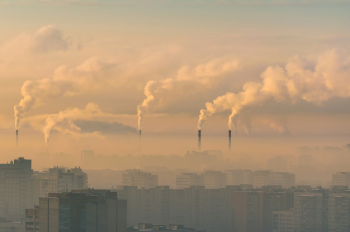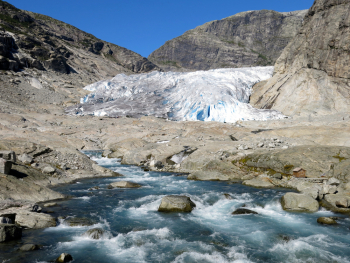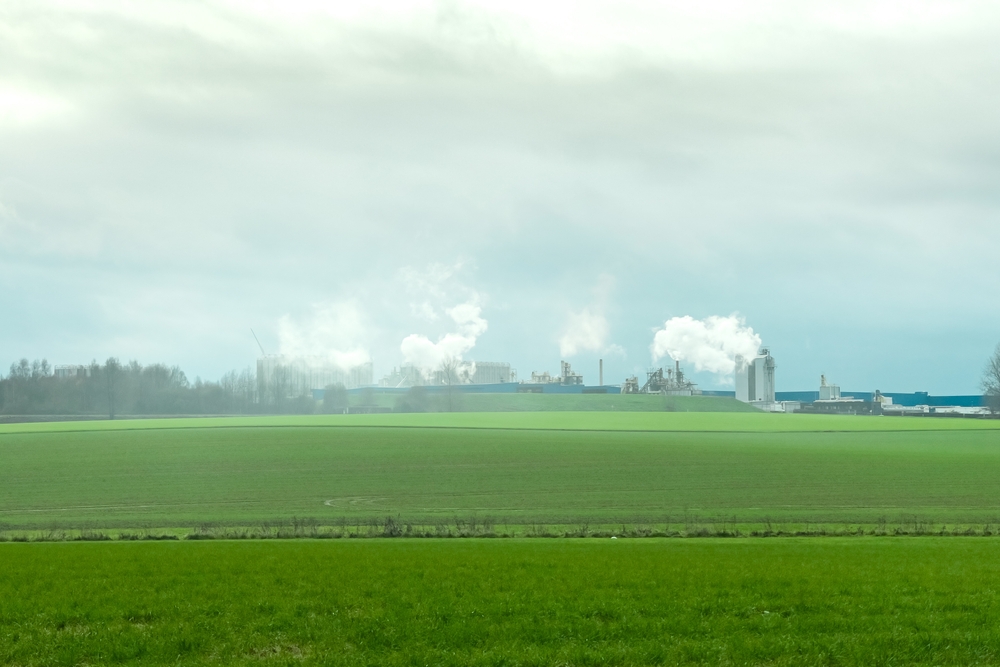Environment: Environmental Issues
Germany faces various environmental issues, including air pollution, water pollution, waste management, deforestation, and climate change. Some of the specific problems affecting Germany include the following:
- Air pollution: Germany experiences high levels of air pollution, particularly in urban areas, due to emissions from traffic, industry, and heating. This can lead to many health problems for residents and harm the environment.
- Water pollution: Germany's waterways and groundwater resources are also threatened by pollution, which can result from industrial activities, agriculture, and sewage discharge.
- Waste management: Germany is a significant waste producer, and managing this waste in an environmentally sustainable way is a considerable challenge. Landfills, incineration, and recycling are all used in Germany, but improving the efficiency and sustainability of these methods remains a key priority.
- Deforestation: Germany has experienced significant deforestation in the past, with large areas of forest being cleared for agriculture and urbanization. Today, efforts are underway to reforest these areas and promote sustainable forestry practices.
- Climate change: Germany is also affected by climate change, which is causing rising temperatures, increased frequency and intensity of extreme weather events, and sea level rise. Germany has set ambitious targets to reduce its greenhouse gas emissions and transition to a low-carbon economy.
Addressing these environmental issues is a major challenge for Germany, but the country has made significant progress in recent years and is continuing to work towards a more sustainable future.
Air Pollution 
Air pollution is a significant environmental issue in Germany, severely impacting people's and the environment's health. The following are some of the acute effects of air pollution in Germany:
- Health concerns: Air pollution can cause various health problems, including respiratory problems, heart disease, and stroke. Studies have shown that delicate particulate matter in the air, which can come from sources like traffic and industrial emissions, is responsible for a significant portion of these health problems. For example, in Germany, air pollution is responsible for thousands of premature deaths yearly.
- Harm to wildlife: Air pollution can also harm wildlife, as emissions from factories and other sources can damage wildlife habitats and populations. For example, in Germany, air pollution has been linked to declines in bird populations and other wildlife species, such as the European bison and the European brown bear.
- Impact on soil and water: Air pollution can also impact soil and water, as pollutants can enter the soil and water and cause harm to plants and animals. For example, in Germany, air pollution has been linked to soil contamination and reductions in water quality, particularly in areas near industrial and transportation sources of pollution.
- Harm to agricultural crops: Air pollution can also harm crops, as pollutants can damage crops and reduce yields. For example, in Germany, air pollution has been linked to reduced crop yields and quality of produce, particularly in areas near sources of pollution.
- Impact on climate change: Air pollution can also contribute to climate change, as emissions from factories and other sources can contribute to global warming. For example, in Germany, air pollution is a significant contributor to the country's carbon footprint, and efforts are underway to reduce emissions and mitigate their impact on the environment. Germany has set a goal to become climate-neutral by 2050 and is taking steps to reduce emissions from transportation, industry, and other sectors.
- Reduced visibility: Air pollution can also result in reduced visibility, as pollutants can obscure views and reduce air quality. In Germany, air pollution is a concern in cities, particularly during periods of high air pollution when visibility can be reduced. For example, in 2019, a high-pressure weather system over Germany led to high levels of air pollution, causing visibility to be reduced in cities like Berlin, Munich, and Frankfurt.
Despite these challenges, Germany has been progressing in addressing air pollution through various policy measures and technological advancements. For example, the country has implemented emissions standards for vehicles, encouraged the use of renewable energy, and supported research and development of new technologies to reduce emissions from factories and other sources. Through these efforts, Germany is working to reduce the impact of air pollution on the environment and improve the quality of life for people in the country.
Water Pollution 
Germany's water pollution is a major environmental issue that can have severe ecological and human health consequences. Water pollution occurs when harmful substances enter bodies of water, causing damage to aquatic life and making the water unsafe for human use.
- Health concerns: Water pollution can cause various health problems, including gastrointestinal illness, skin irritation, and respiratory problems. In Germany, water pollution has been linked to disease and other health problems, particularly in areas near industrial facilities and other sources of pollution. For example, high levels of nitrates in drinking water have been linked to increased gastrointestinal illness in some parts of Germany.
- Impact on aquatic life: Water pollution can also harm aquatic life, reducing fish and other wildlife populations. In Germany, water pollution has been linked to declines in fish populations and other marine species, resulting in some fishing areas' closure. For example, the River Rhine, one of Germany's largest rivers, has been heavily polluted for decades, and fish populations in the river have declined.
- Reduction in water quality: Water pollution can also reduce water quality, making it less safe for human use and reducing its overall value. In Germany, water pollution has been linked to reductions in water quality, and some rivers and lakes are considered to be heavily polluted. For example, high levels of chemicals such as pesticides and herbicides in the water have been linked to reduced water quality in some parts of Germany.
- Harm to agricultural crops: Water pollution can also harm agricultural crops, as contaminated water can be used for irrigation and can harm crops. In Germany, water pollution has been linked to reduced crop yields and quality. For example, high levels of nitrates in irrigation water have been linked to reduced crop yields in some agricultural areas of Germany.
- Impact on soil quality: Water pollution can also impact soil quality, as pollutants can enter the soil and cause harm to plants and animals. In Germany, water pollution has been linked to soil contamination and reductions in soil quality. For example, high levels of chemicals in water have been linked to soil contamination and declines in soil quality in some parts of Germany.
- Reduction in biodiversity: Water pollution can also decrease biodiversity, as polluted water can harm plant and animal species and reduce their populations. In Germany, water pollution has been linked to declines in biodiversity, particularly in areas near sources of pollution. For example, declining bird populations in some regions of Germany has been linked to water pollution from industrial activities.
Water pollution significantly impacts the environment in Germany, and efforts are underway to reduce emissions and minimize their impact on the environment. However, more work must be done to ensure that Germany's water resources are protected and preserved for future generations.
Waste Management 
Effective waste management is essential for protecting the environment and public health. In Germany, waste management has become a significant issue, as the country generates large amounts of waste each year and faces challenges in managing it properly.
- Impact on climate change: Waste management can also contribute to climate change, as emissions from waste management practices, such as landfills and incineration, can release greenhouse gases into the atmosphere. For example, in Germany, efforts are underway to reduce emissions from waste management practices and mitigate their environmental impact.
- Reduction in land availability: Waste management can also reduce land availability, as landfills and other waste management facilities can consume large land areas. In Germany, there has been a shift towards more sustainable waste management practices, such as recycling and composting, to reduce the amount of waste generated and minimize the impact on land availability.
- Impact on biodiversity: Waste management practices can also impact biodiversity, as improper waste disposal can harm wildlife and damage habitats. Waste management practices in Germany are closely monitored to minimize environmental impact and protect wildlife populations.
- Health concerns: Poor waste management practices can pose a health risk, as waste can contain hazardous materials and pollutants that can threaten human health. For example, in Germany, waste management regulations, such as the Federal Immission Control Act, ensure that waste management practices minimize health risks to the public.
- Contamination of soil and water: Poor waste management practices can contaminate soil and water, as pollutants from waste can leach into the ground and groundwater. For example, in Germany, the discovery of dioxins in the soil near a waste disposal site in North Rhine-Westphalia in the 1990s resulted in widespread public concern and a clean-up effort.
- Air pollution: Waste management can also result in air pollution, as emissions from waste management facilities and vehicles can release pollutants into the air. For example, in Germany, the operation of waste incineration plants, such as the one in Frankfurt, has been criticized for its air pollution impact on local communities.
In conclusion, waste management significantly impacts the environment, particularly in Germany, where waste management practices are highly regulated and monitored to minimize their impact. It is essential to continue to develop and implement sustainable waste management practices to protect the environment and promote a more sustainable future.
Deforestation
Deforestation, the removal of trees and forests, significantly impacts the environment and the ecosystems they support. In Germany, while deforestation is not as extensive as in other parts of the world, it still substantially affects the country's environment and ecosystems.
- Loss of biodiversity: Deforestation can result in biodiversity loss, as it eliminates habitats for wildlife and destroys ecosystems. In Germany, deforestation has been linked to declines in biodiversity, particularly in areas where forests have been converted for other uses. For example, the conversion of forest land for agriculture or urban development has led to declines in wildlife populations and the destruction of habitats for many species.
- Impact on climate change: Deforestation also contributes to climate change, as trees absorb carbon dioxide from the atmosphere and store it. Removing trees and forests releases this stored carbon into the atmosphere, contributing to global warming. In Germany, efforts are underway to reduce deforestation and promote reforestation to mitigate its impact on climate change. For example, Germany has established reforestation programs and protected forest land areas to help mitigate deforestation's effect on climate change.
- Soil erosion: Deforestation can also result in soil erosion, as the loss of trees and vegetation results in the loss of the root systems that help to hold soil in place. In Germany, soil erosion due to deforestation has been a concern in some areas, and efforts are underway to address this problem. For example, Germany has implemented measures to reduce soil erosion, such as planting cover crops, establishing erosion control structures, and promoting sustainable land use practices.
- Reduction in water quality: Deforestation can also decrease water quality, as the loss of vegetation and trees can reduce the ability of the landscape to filter and clean water. In Germany, deforestation has been linked to some areas' water quality reductions. For example, the conversion of forest land for agriculture or urban development has led to increased runoff and declines in water quality in some regions.
- Impact on natural disasters: Deforestation can also increase the risk of natural disasters, such as floods and landslides, as removing trees and vegetation can reduce the ability of the landscape to absorb water and reduce the risk of runoff. In Germany, deforestation has been linked to an increased risk of natural disasters in some areas. For example, areas with high levels of deforestation have experienced increased flooding and landslides, leading to property damage and loss of life.
- Reduction in timber and non-timber forest products: Deforestation can also result in the removal of valuable timber and non-timber forest products, such as medicines, spices, and resins, that are important for local communities and the global economy. In Germany, efforts are underway to promote sustainable forestry practices to ensure the long-term availability of these resources. For example, Germany has established certification programs for sustainable forestry practices and regulations to protect forests and limit deforestation.
In conclusion, deforestation has far-reaching and adverse effects on the environment, including the loss of biodiversity, impact on climate change, soil erosion, reduction in water quality, increased risk of natural disasters, and removal of valuable forest products. In Germany, efforts are underway to mitigate the impact of deforestation and promote sustainable forestry practices to protect the environment and preserve the long-term health of forests.
Climate Change 
Climate change is a global environmental issue that significantly impacts the environment, including Germany. The effects of climate change in Germany include:
- Rising temperatures: Germany has experienced rising temperatures due to climate change, resulting in more frequent heatwaves and a longer crop growing season. This has led to changes in the timing of migration patterns for some bird species and the types of crops that can be grown in the country. For example, Germany has experienced a significant rise in temperatures, with average temperatures increasing by about 1°C since the late 19th century. This has led to more frequent heatwaves and one of the hottest on record, such as the heatwave in 2003, and caused widespread forest fires and heat-related health problems. As a result of rising temperatures, the growing season for crops in Germany has also extended, allowing for the production of new crops, such as olive trees, in some regions.
- Flooding and drought: In Germany, climate change has also led to increased extreme weather events, including flooding and drought. The country has recently experienced several severe floods, particularly in low-lying areas and along rivers, which can damage infrastructure, homes, and crops. For example, climate change has caused an increase in extreme weather events, such as the historic flooding in 2013 in the city of Dresden, which resulted in extensive damage to homes and businesses. In addition, Germany has also experienced increased periods of drought, particularly in the east and southeast regions of the country, affecting agriculture and causing water shortages in some areas.
- Melting of glaciers: The melting of glaciers in Germany, due to rising temperatures, has led to rising sea levels and increased risk of flooding. The melting of glaciers has also affected freshwater availability, as the country relies on glacial runoff for much of its water supply. For example, the Breitenbach glacier in the Bavarian Alps has shrunk by over 30 percent in the past century.
- Loss of biodiversity: Climate change has also significantly impacted biodiversity in Germany, as rising temperatures and changing precipitation patterns have altered ecosystems and reduced habitats for wildlife. For example, the decline in amphibian populations, such as the fire-bellied toad, has been linked to the impacts of climate change, including the loss of wetlands and increased frequency of droughts.
- Forest dieback: Climate change has also led to widespread forest dieback in Germany, as rising temperatures, drought, and other factors have stressed trees and reduced their ability to thrive. For example, the dieback of spruce forests in the Black Forest has been linked to the impacts of climate change, including rising temperatures and increased drought frequency.
- Increased allergy risk: The changing climate has also increased allergy risk in Germany, as rising temperatures and changes in precipitation patterns have increased pollen production and the spread of allergens. For example, the increased prevalence of hay fever and other respiratory allergies in urban areas, particularly in cities like Berlin, has been linked to the impacts of climate change.
In response to these effects of climate change, Germany has implemented several measures to reduce its greenhouse gas emissions and mitigate the impact of climate change on the environment. These measures include increased investment in renewable energy, energy efficiency improvements, and sustainable land use practices.
Copyright © 1993—2025 World Trade Press. All rights reserved.

 Germany
Germany 